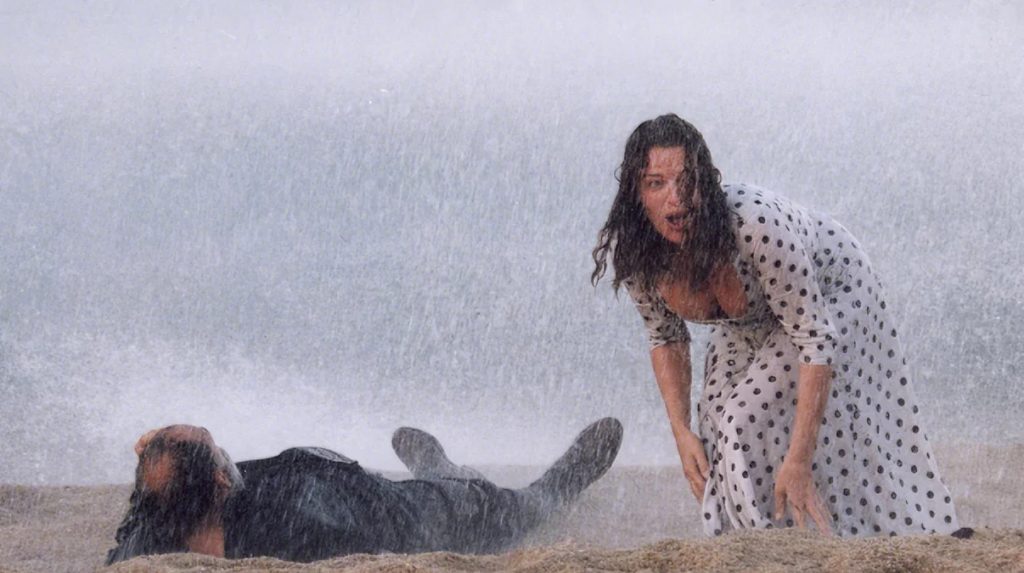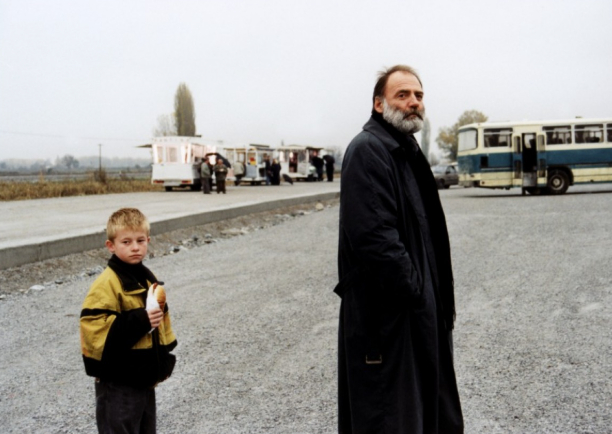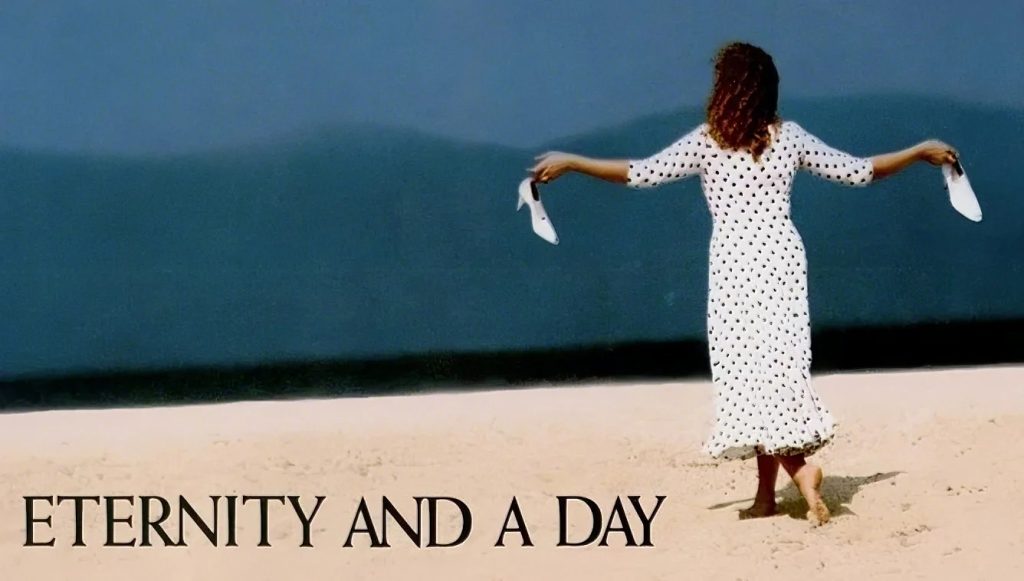Eternity and a Day (1998)
Eternity and a Day is a 1998 Greek drama directed by Theo Angelopoulos, winner of the Palme d’Or at the Cannes Film Festival. Starring Bruno Ganz in a hauntingly introspective performance, the film is a meditation on memory, mortality, and the search for meaning at the end of life. It is one of the most poetically constructed works of late 20th-century European cinema, notable for its deliberate pacing, lyrical visuals, and philosophical core.
Plot Summary
Alexandros, an aging and terminally ill writer, wanders through the final day of his life, confronting the ghosts of memory, lost love, and unfulfilled potential. With death quietly looming, he encounters a young Albanian boy fleeing deportation — and in the process of helping him, Alexandros finds a fleeting sense of purpose, connection, and redemption.
Through a blend of present-day realism and fragmented flashbacks, the film follows Alexandros as he revisits the house where he once lived with his late wife Anna, reconnects with the fading poetry of a long-forgotten 19th-century Greek poet, and listens to the language of silence in the spaces between moments.
There is no dramatic arc in the conventional sense. Instead, the film is a gentle river of consciousness, winding through themes of exile, fading time, and the desire to hold onto something — anything — before it disappears.
Direction & Cinematic Style
Theo Angelopoulos is a master of time and space, and Eternity and a Day may be his most distilled example. Long takes, extended tracking shots, and glacial pacing are trademarks of his visual language. The camera rarely cuts quickly; instead, it lingers, observes, and floats like memory itself.
The film is suffused with a muted color palette — greys, blues, and soft golds that mirror the melancholic mood of both the protagonist and the declining world around him. There’s a dreamlike quality to many scenes, not due to special effects, but through poetic framing and meditative movement.
The soundscape is minimalist. Silence is often as important as dialogue, and Eleni Karaindrou’s gentle, mournful score adds a sense of weightless sorrow to each image. Her music doesn’t manipulate emotion — it reveals it.
Characters & Performances
Bruno Ganz as Alexandros
Ganz delivers a performance of extraordinary restraint and inner depth. His Alexandros is not loud, not tragic in the theatrical sense — he is tired, reflective, and yearning for reconciliation with his own life. Ganz inhabits the role completely, saying more in a glance or pause than many actors say in pages of dialogue.
The Albanian Boy
Though nameless for most of the film, the boy represents the refugee, the exile, the stranger — both literal and symbolic. His relationship with Alexandros is never overly sentimental; it is built on quiet gestures and mutual understanding, crossing generational and linguistic boundaries.
Anna (Alexandros’s wife, seen in memory)
Though she exists mostly in flashbacks and remembered fragments, Anna’s presence lingers over the film like a perfume that never fades. Her memory is not just personal, but poetic — a symbol of everything beautiful and lost.

Themes & Symbolism
At its heart, Eternity and a Day is about the passage of time — and how memory is the only vessel we have to hold onto life. The sea, recurring throughout the film, represents the boundary between countries, between life and death, between what was and what might have been.
The film also draws on exile — both physical and spiritual. Alexandros is an exile from his own past, while the boy is an exile from his country. Their brief companionship is not about salvation, but recognition: two souls, both untethered, drifting toward their final harbor.
The recurring poem by Dionysios Solomos, which Alexandros is obsessed with completing, becomes a metaphor for the unfinished state of life itself — how we rarely complete what we start, and how art can outlive the artist.

Strengths
- Lyrical, philosophical screenplay that transcends language
- Bruno Ganz’s subtle, profound performance
- Masterful cinematography and visual storytelling
- Rich thematic depth: mortality, exile, memory, time
- One of the most emotionally honest depictions of dying in cinema
Weaknesses
- Extremely slow pacing may challenge modern audiences
- Minimal plot structure can feel meandering without philosophical context
- Symbolism-heavy — some viewers may find it impenetrable without background in Greek culture or Angelopoulos’s style
- Demands patience, attention, and emotional openness
Conclusion
Eternity and a Day is not a film to be watched — it is a film to be experienced. It doesn’t shout, it doesn’t entertain in the traditional sense, and it never explains itself. Instead, it unfolds like memory: fluid, incomplete, painful, and beautiful.

It’s a cinematic poem — one that asks us to sit with silence, to see ourselves in the spaces between the words, and to feel the sorrow of passing time. For those willing to surrender to its rhythm, the reward is profound: a gentle, aching reminder that even a single day can hold the weight of eternity.
⭐ Final Rating: 9.2/10
A slow, soulful masterpiece — Eternity and a Day is cinema as literature, time as poetry, and life as a fading light.
#EternityAndADay #BrunoGanz #TheoAngelopoulos #ArtHouseCinema #PalmeDOrWinner #GreekCinema #PoeticFilm #CinematicMeditation
